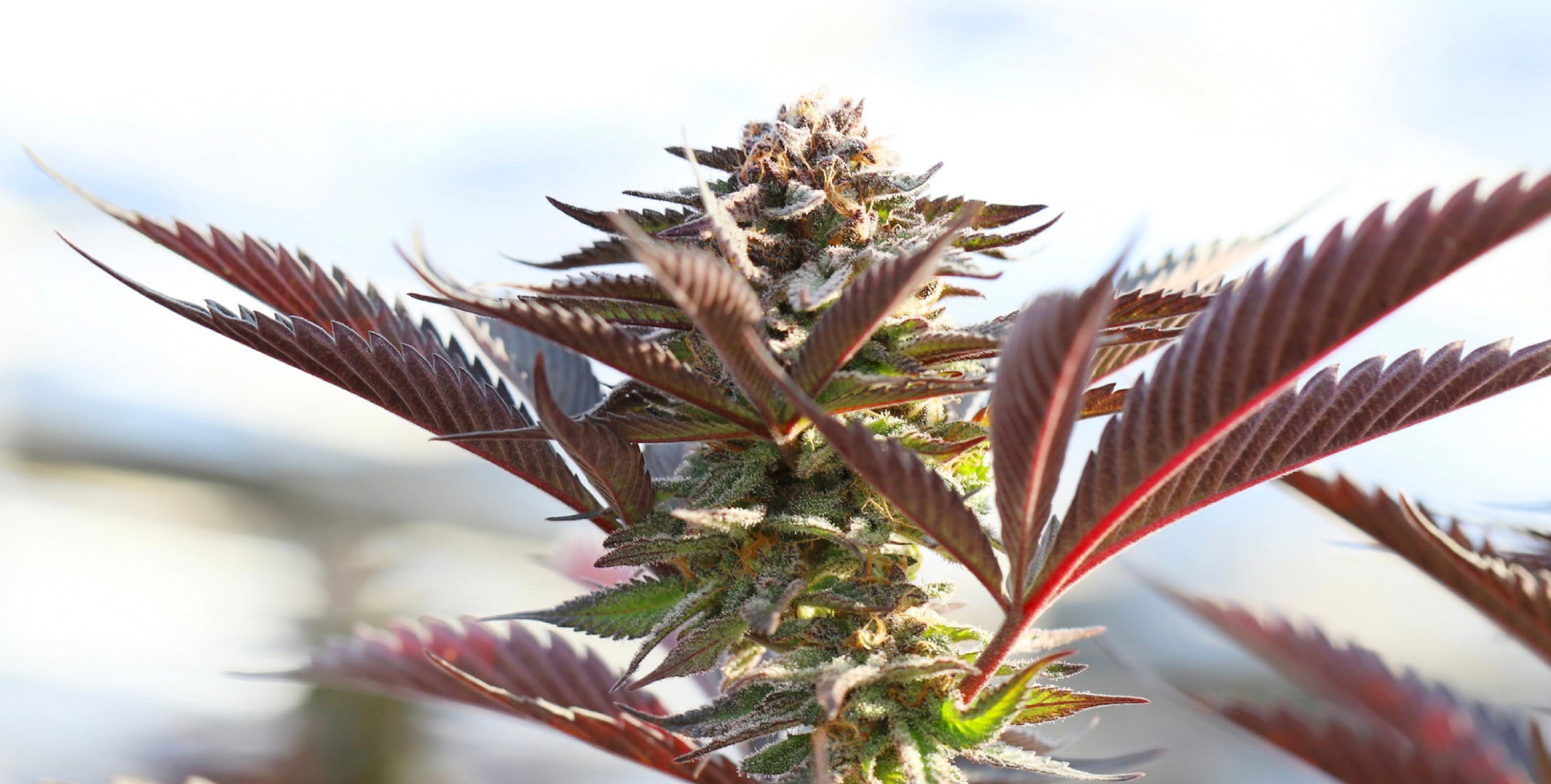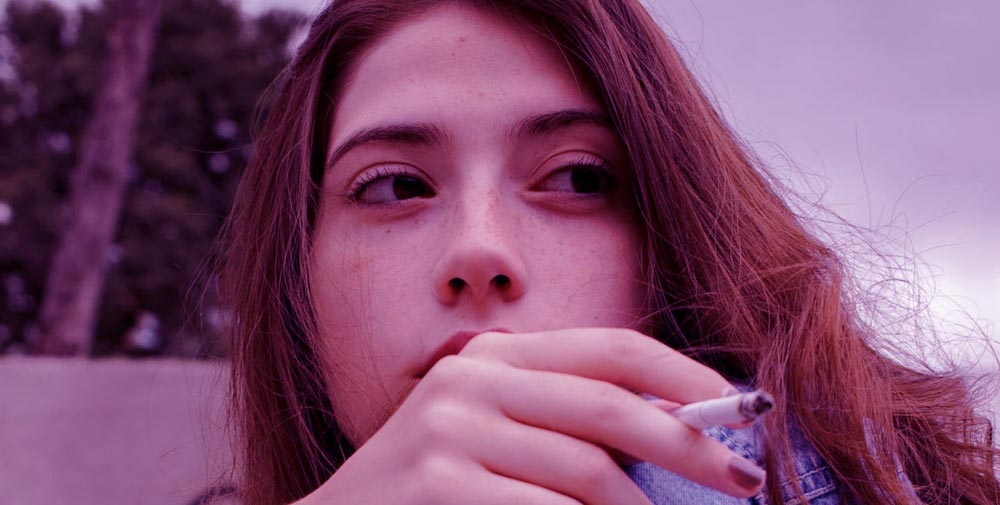by Sugar Team October 02, 2022 6 min read

In 2018, CBD became the focus of a great deal of media attention after the FDA approved Epidiolex, a CBD-based medication used to treat two types of rare and severe childhood epilepsy. The approval was a historic moment, marking the first time the federal government had approved a cannabis-derived medication.
Cannabidiol (CBD) is one of over 100 cannabinoids in the Cannabis sativa plant. CBD is non-intoxicating, meaning it will not get you “high.” Unlike THC, the other well-known cannabinoid, CBD has a wide range of potential medical applications.
CBD interacts with the body’s endocannabinoid system, which regulates many vital functions, including mood, sleep, appetite, and pain. Research suggests that CBD may help to relieve anxiety by reducing stress and improving sleep.
Interested in using CBD to relieve frustrating anxiety symptoms? Let’s discuss the potential use of CBD for anxiety and provide an overview of the current state of research.
Nowadays, CBD sits on many shelves beside other supplements and over-the-counter medications. But what is CBD, and what research led to its widespread use?
Scientists discovered CBD in the 1930s, and since then, researchers have isolated almost 113 cannabinoids from the plant, with THC and CBD being the most widely studied among them. However, unlike its well-known cousin THC (tetrahydrocannabinol), CBD does not produce any psychoactive effects when consumed.
However, the psychoactive compound that gives marijuana its "high," tetrahydrocannabinol (THC), is present in very minute amounts in CBD, primarily derived from hemp. In reality, the THC concentration of goods produced from hemp cannot exceed 0.3%, according to the US authorities.
You can also find CBD in oils, pills, edibles, creams, and vape juices. Most people confuse CBD with hemp oil, but they are different. Hemp oil is made from hemp seeds and does not contain cannabinoids like CBD.
Despite the FDA approving only one CBD-based medication to treat two severe forms of childhood epilepsy, cannabidiol (CBD) products are on the rise. There’s been an increase in awareness surrounding the potential health benefits of CBD oil and its low-risk profile.
Many states have legalized medical marijuana, which contains CBD and THC, another compound found in cannabis plants. This has led to greater availability of CBD products in dispensaries and online.
The Farm Bill of 2018 removes hemp-derived CBD products with 0.3% THC or less from the Controlled Substances Act, making them legal at the federal level.
Although the federal government currently classifies CBD in the same category as marijuana, it seldom enforces against it. All 50 states have laws that legalize CBD with varying degrees of restrictions.
When you feel anxious, your body is in a fight-or-flight state; your sympathetic nervous system is activated, releasing stress hormones like cortisol. The anxiolytic effect is the opposite of this – it is a state of calmness and relaxation.
This is where CBD comes in. One study showed that repeated intake of CBD produces an Anxiolytic effect, meaning that it has the ability to reduce anxiety and stress.
Teenagers from Japan took 300 mg of CBD daily for a month and took the Fear of Negative Evaluation Questionnaire and the Liebowitz Social Anxiety Scale. The results from both questionnaires showed a decrease in anxiety and an increase in self-esteem.
This test focuses mainly on social anxiety, to which most teenagers can relate. This study proves that CBD has the ability to relieve social anxiety in teenagers, which is a significant age group to focus on when it comes to anxiety disorders.
Authors of another study claim that CBD interacts with the brain's serotonin 5-HT1A receptor, cannabinoid type 1 receptor (CB1R), and other receptors to control behaviors brought on by anxiety and fear. The study also articulated that CBD can alleviate different types of anxiety disorders, such as:
Generalized anxiety disorder (GAD)
Social anxiety disorder
Panic disorder
Obsessive-compulsive disorder (OCD)
An increase in serotonin levels caused by CBD can help reduce anxiety. Serotonin is a neurotransmitter that plays a vital role in regulating mood and social behavior. Low levels of serotonin are linked to depression and anxiety.
CBD also activates the adenosine receptor. This receptor regulates pain, inflammation, heart rate, and sleep. The activation of this receptor can help to reduce anxiety.
Also, a study in 2020 assessed the effects of CBD on 397 New Zealand-based people. For various conditions, including non-cancer pain, cancer-related symptoms, neurological symptoms, and mental health symptoms, the research participants were prescribed medicinal CBD.
After receiving CBD therapy for three weeks, all groups reported improvements in their general quality of life. According to reports, those who got CBD therapy for anxiety or depression reported increased capacity to carry out daily tasks and decreased pain and anxiety or depression symptoms.
70% of research subjects expressed satisfaction with their CBD treatments on a scale of good to excellent.
Regarding PSTD and phobia therapy, a study showed that 11 patients who received CBD orally together with routine treatment reduced symptoms of PTSD compared to those who only received the routine therapy.
The best CBD dosage for treating anxiety varies from person to person without clear FDA advice. You could discover that one approach works for you better than another. CBD can be consumed in the following ways:
Oil: CBD oil is typically taken sublingually or under the tongue. The dropper is used to measure out a serving, which can vary from brand to brand. Oils are popular for their swift absorption.
Tincture: A CBD tincture is another way to take CBD oil. Rather than straight oil, tinctures are alcohol-based. They’re often flavored, making them more palatable than pure CBD oil.
Capsule: CBD capsules are similar to taking a daily vitamin. The capsules are pill-sized and shaped; they look like a gel casing filled with liquid. Casings are generally made from gelatin or a plant-based source.
Gummies: CBD gummies are a popular way to take cannabidiol, especially among adults who don’t like the taste of the oil. Like vitamin gummies, they are typically made with gelatin and sugar.
Topical: A CBD topical is applied directly to the skin and can be used to treat local pain or skin conditions.
Flowers: CBD-rich hemp flowers can be smoked in a joint, pipe, bong, or vaporized with a vape pen. CBD cigarettes are also available.
There is no one-size-fits-all answer to this question. Begin with a low dose and increase as needed. Remember, it may take several weeks of regular CBD use before you start to feel the full effects.
If you want to reduce your anxiety, it might be tough to know the CBD dose to attempt. The CBD dose depends on your weight, metabolism, and unique biology.
Second, it can be challenging to locate commercially accessible products with the same level of CBD, as the organization National Organization for the Reform of Marijuana Laws (NORML) notes, since scientific research on CBD employs large doses of the substance.
The unwritten rule is to start with a tiny amount and then slowly increase it until you obtain the desired result.
Yes, CBD is safe for humans to consume. In fact, it is one of the least toxic substances known to man. CBD has been shown to be well tolerated in human clinical trials. The World Health Organization has declared CBD to be safe and well-tolerated in humans, with a good safety profile.
The WHO committee concluded that CBD does not have abuse potential or cause harm.
Therefore, given that CBD is not currently scheduled in and of itself (only as a component of cannabis extracts), it is reasonable to assume that CBD will remain unscheduled unless and until clinical research provides more data demonstrating that it warrants control under the CSA.
As with any substance, there can be side effects associated with using CBD. These side effects are typically mild and temporary. The most common side-effects include:
Dry mouth
Diarrhea
Reduced appetite
Drowsiness or fatigue
Interaction with other medications
Also, taking CBD while on other medications may alter their effects. Therefore, it is important to consult a physician before taking CBD, especially if you are taking other medications. As mentioned, always start with the lowest possible dose and increase slowly as needed.
CBD is still a very new topic, and a lot of research still needs to be done to really understand its potential. However, the initial studies look promising, and it seems like CBD could be a beneficial tool in managing anxiety disorders.
While CBD has the potential to cure several conditions when labeled and used correctly, more study is required to fully comprehend how it might influence the body, its adverse effects, and what pharmaceuticals it may interact with.
The compound's connection to marijuana, which is regarded as a top-level schedule 1 substance in the United States, is a significant barrier to sound CBD research.
As a result, cannabis research has primarily been limited to studies conducted on animals or in other nations, which may contain distinct cannabis strains and are not necessarily applicable in the United States.
Despite just being approved as an epilepsy medication in 2018, the traction that Epidiolex has gotten in such a short amount of time is incredible. It shows that there is a lot of potential for CBD and other cannabinoids to be used as medication.
It will be interesting to see how CBD develops over the next few years and what new uses for it are discovered.

by Sugar Team April 10, 2023 7 min read

by Sugar Team March 31, 2023 8 min read

by Sugar Team March 17, 2023 7 min read